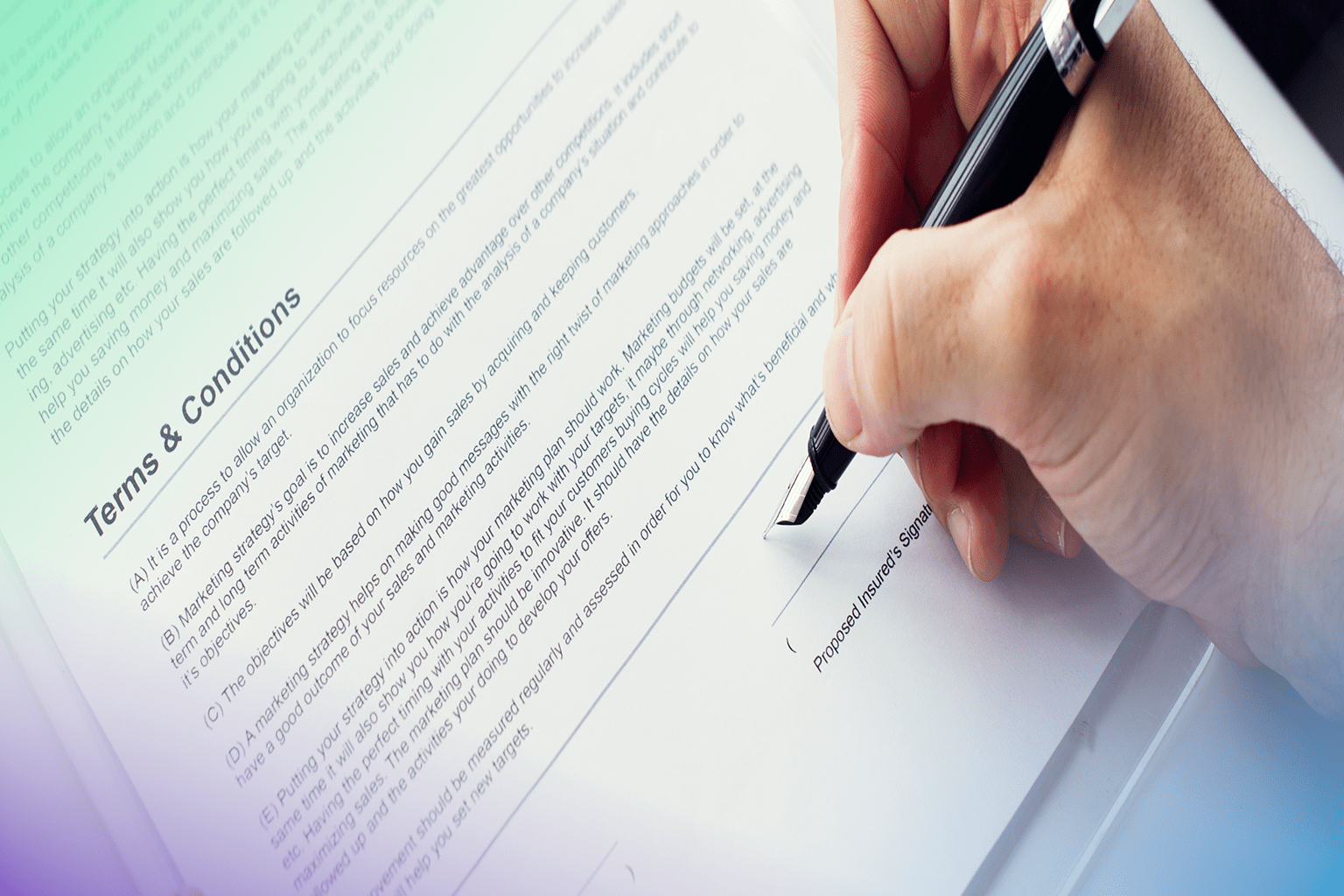Creating the perfect consulting resume? Check.
Practicing your case interview skills? Check.
But what about the cover letter? You’ve heard it’s optional, but is it really a good idea to skip?
I’ve been in your shoes too, wondering if a cover letter is worth it.
This no-BS guide clears it up. Here’s what we’ll cover:
- McKinsey’s official stance on cover letters
- How recruiters evaluate them
- When they can help or hurt your candidacy
- Tips to create a compelling cover letter
- Scenarios when you may want to skip the cover letter
Let’s clear it up step by step.
What’s McKinsey’s Official Stance on Cover Letters?
McKinsey keeps it simple: cover letters are optional.
Surprising, right?
Most other firms still ask for them. But optional doesn’t mean useless.
Your application can stand on its own, sure, but the correct cover letter can give you that extra edge.
How McKinsey Recruiters Use Cover Letters?
If cover letters are optional, then when do they actually make a difference? Recruiters usually see them as valuable in three ways:
- For borderline candidates: If your resume is solid but not a clear standout, a strong cover letter can give you the edge.
- As a writing sample: McKinsey values crisp, logical communication. Your letter demonstrates that you can clearly explain ideas.
- To gauge genuine interest: A thoughtful letter shows you’re serious about McKinsey specifically, not just consulting in general.
Think of it this way.
A cover letter won’t land you the job by itself, but it can be the tiebreaker when two candidates look equally strong.
As one former recruiter put it:
- “We rarely read cover letters unless a candidate was on the fence, but when we did, a sharp one could tip the scales.”
Another added:
- “The best letters were short, specific, and clearly about McKinsey.”
So, who benefits most from writing one?
- Students / Recent grads → Highlight leadership roles, projects, or impact beyond GPA.
- MBA candidates → Show why McKinsey specifically and connect pre-MBA experience to consulting.
- Experienced hires → Use it to explain a career pivot and frame your background as consulting-ready.
To get a sense of where the cover letter really fits, here’s how the main parts of a McKinsey application stack up:
| Component | Importance | Why it matters |
| Resume | Critical | This is the backbone of your application. It must be clear, polished, and error-free. |
| Case Interview | Critical | Performance here often decides the outcome. Strong problem-solving and communication are non-negotiable. |
| Personal Experience Interview (PEI) | Very High | Shows how well you fit with McKinsey’s values and culture through real stories from your experience. |
| Academic Credentials | High | Your GPA and school reputation carry weight, especially if you’re just starting. |
| Cover Letter | Moderate | Can tip the scale in borderline cases or highlight something unique about you. |
| Recommendation Letters | Low to Moderate | Not always required, but it can add credibility if they come from someone respected. |
When Should You Skip the McKinsey Cover Letter?
If you’re short on time or focus, it may be smarter to skip the letter than submit something rushed or weak. Here are the most common situations:
1. Tight Deadlines
When a deadline is approaching, focus your energy on the resume and case preparation. A weak cover letter often does more harm than good.
Why?
- Excellence matters: Submitting something rushed or generic can signal carelessness.
- Prioritize impact: The resume and case prep carry far more weight than the letter.
- Avoid mistakes: Last-minute writing usually leads to typos and unclear thinking.
If you’re pressed for time, use a quick Triage Technique:
- Check how much time you actually have.
- Prioritize essentials (resume, online form, test prep).
- Be honest. Can you write a letter that’s genuinely strong? If not, focus on polishing the parts that matter most.
2. Stronger Alternatives Available
In some cases, other parts of your application carry more weight than a cover letter:
- Networking: Direct connections with consultants often outweigh what’s written in a letter.
- Resume strength: A clear, results-driven resume can stand on its own.
- Exceptional credentials: Distinctive achievements (like launching a startup) don’t need extra explanation.
Pro Tip: Prioritize the elements that give you the most potent edge like your resume, your network, and your interview prep.
What’s the Strategic Value of Submitting a Cover Letter?
Beyond the basics, a strong letter can serve three big purposes:
1. Standing Out in a Competitive Applicant Pool
Getting into McKinsey is like competing in an Olympic final. Everyone’s accomplished and hungry for excellence. A sharp cover letter can help you stand out by:
Here’s how to make it work:
- Showcase Perspective: Use examples that highlight what makes you uniquely valuable.
- Demonstrate Cultural Fit: McKinsey seeks leaders with strong problem-solving skills and a drive for excellence. Show evidence of these.
- Flaunt Your McKinsey Knowledge: Reference projects, culture, or values that excite you.
Pro Tip: I use the “PIER” formula for awesome cover letters:
- P – Personal Backstory
- I – Industry Insights
- E – Enthusiasm for McKinsey
- R – Relevant Skills
Put these pieces together, and you’ll have a cover letter that stands out.
2. Addressing Resume Red Flags or Gaps
We’ve all got bumps in our professional or academic history that we wish weren’t there. Maybe your GPA took a temporary nosedive. Or you have an unconventional career path.
A cover letter enables you to tackle these head-on. Here’s how to address red flags in your application:
- Call it out early: Don’t wait for the question to arise. If there’s a noticeable resume gap or weakness, briefly explain it in a positive light (e.g., “low GPA due to illness” reframed as perseverance and recovery).
- Focus on growth: Frame past challenges as opportunities for learning. Share how overcoming obstacles made you a stronger candidate.
- Keep it short: Don’t belabor negatives. One to two sentences is usually sufficient.
The goal isn’t to make excuses but to provide helpful context and demonstrate resilience.
3. Showcasing Your Communication Skills
In consulting, clear communication is everything. Your cover letter lets you showcase your ability to clearly and compellingly articulate ideas.
Here’s what McKinsey will be assessing:
- Clarity: Can you logically explain complex concepts?
- Concise: Can you get to the point without unnecessary fluff?
- Persuasiveness: Can you make a compelling case for why you’re a great fit?
- Attention to Detail: Any typos or errors? Is formatting consistent?
Think of your cover letter as a mini consulting report. It should be crisp, cohesive, and convincing.
How to Craft a Powerful McKinsey Cover Letter

Think of your cover letter as a mini-consulting problem.
You state the problem, describe your action, and highlight the impact.
This mindset keeps your letter structured, sharp, and ready for McKinsey.
Here’s what to include in your cover letter:
1. Opening Statement
Begin with a concise hook that reveals what motivates you. It could be a personal experience or a defining challenge.
Example: “I developed an interest in problem-solving while helping restructure my family’s business.”
2. The ‘Why McKinsey Story
Explain why McKinsey is the right place for you. Avoid generic references to “top firms.” Point to something specific about McKinsey’s work, culture, or values.
Example: “McKinsey’s digital transformation projects align with my experience leading a supply chain initiative that improved efficiency by 25%.”
3. Relevant Experiences
Choose two or three experiences that show consulting skills. They can come from work, school, or even activities outside. What matters is the impact you made
5. Soft Skill
Back up qualities like leadership, teamwork, or resilience with short, concrete examples. Instead of just saying “I’m a strong leader,” mention the time you led a project, rallied a team, or solved a conflict. Showing evidence makes your skills believable and memorable.
6. Quantifiable Achievements
Wrap up with a forward-looking line that highlights both your enthusiasm and the value you hope to bring.
Think of it as answering, “Why McKinsey, and why you?”
A strong closing might touch on how you’re excited to grow within the firm while also contributing your skills to make an impact from day one.
Quick Tip: Don’t repeat your resume. Use the letter to add context and demonstrate a good fit.
Sample McKinsey Cover Letter
Here’s a simple skeleton you can adapt. Make sure not to copy it word for word. Swap in your own stories so it feels real.
[Your Name]
[Your Address] | [Your Email] | [Your Phone]
[Date]
McKinsey & Company
[Recruiter Address]
Dear [Recruiter Name],
- Opening Hook: A brief anecdote or statement that shows motivation. Example placeholder: “Supporting my family’s business challenges sparked my interest in solving complex problems.”
- Why McKinsey: 1–2 sentences highlighting why the firm specifically appeals to you. Example placeholder: “McKinsey’s work in digital transformation resonates with my project experience in supply chain optimization.”
- Experience 1: Highlight one relevant achievement, tied to McKinsey values.
- Experience 2: Present a different example that shows additional skills.
- Soft Skills: A short paragraph that demonstrates leadership, teamwork, or adaptability.
- Closing: A forward-looking statement about contributing and growing at McKinsey.
Sincerely,
[Your Name]
Aligning McKinsey’s Value
McKinsey isn’t only looking at skills. They also want to see if you’ll fit with the culture.
Your cover letter is an excellent opportunity to showcase this. One way I like to explain it is through Value Mirroring: take each of McKinsey’s core values and connect it to something real you’ve done.
- Professional Standards. Show commitment to excellence and integrity. (Ex: Delivering an analysis under pressure without letting accuracy slip).
- Client First. Demonstrate prioritizing the client’s needs over convenience.
- Obligation to Dissent. Highlight a moment when you respectfully challenged assumptions.
Ex: Proposing an alternative plan that improved results despite resistance. - Firm Resources to Clients. Illustrate stepping up when challenges hit.
- Exceptional People. Show how you contributed to team success or supported colleagues.
And here’s the bonus.
Practicing this kind of Value Mirroring doesn’t just help your cover letter.
It also prepares you for the personal experience interview, as McKinsey will be testing for these same values during the interview.
Now, if you’re also applying to BCG or Bain, it helps to know that each firm views cover letters a little differently. Here’s how they stack up side by side:
| Firm | Official Stance | When It Helps Most | Unique Angle |
| McKinsey | Optional | Borderline cases, gaps, showing communication skills | Flexible. Fine to skip if resume/network strong |
| BCG | Encouraged | Demonstrating intellectual curiosity, structured thinking | Often used as a writing sample |
| Bain | Strongly recommended | Showing cultural fit (“Bainie” vibe), teamwork, and passion | More personal. Bain values a close-knit culture |
Expert Tips for McKinsey Application Success

1. Prioritize Interview Prep over Cover Letters
Here’s a counterintuitive truth. If time is short, prioritize interview preparation over polishing your cover letter.
Why?
Because McKinsey’s interview gauntlet is where candidates truly rise or fall. A strong cover letter might win you the interview, but weak interview performance will end it quickly.
Here’s how to approach it:
- Allocate time wisely: If you’ve got 10 hours, spend 2 on your resume, 1 on a cover letter (if you choose), and 7 on cases and PEI prep.
- Master the case interview: McKinsey cases are tough. Sharpen your frameworks, mental math, and analytical speed, these are non-negotiable.
- Prepare personal stories: Be ready with sharp, authentic examples that show leadership and impact.
- Understand McKinsey’s values: They’ll come up everywhere, in essays, cover letters, and interviews. Internalize them.
I call this the 80/20 Approach: invest 20% of your time in written materials, 80% in interviews. This balance has helped many candidates land offers.
2. Leverage Referrals and Networking
A strong cover letter can help, but nothing boosts your application like real connections and referrals.
Practical ways to build them:
- Attend firm events: Info sessions, coffee chats, and conferences are great touchpoints.
- Connect on LinkedIn: Reach out to consultants, especially alumni or those in your target practice.
- Engage with content: Comment on McKinsey articles and consultant posts to spark conversations.
- Conduct informational interviews: Even brief conversations can provide valuable insights and potential advocates.
- Join consulting clubs: If you’re a student, this often provides direct access to representatives from McKinsey.
Remember, genuine connections reveal what McKinsey is truly like, and those insights will strengthen your application.
| Recruiting Source | Importance | Why it matters |
| Target Universities | Very High | McKinsey has strong pipelines and alumni networks here, so chances are higher. |
| Employee Referrals | High | A current consultant’s recommendation adds weight and signals a good fit. |
| Industry Experts | Moderate–High | Useful for experienced hires who bring sector knowledge. |
| Online Applications | Moderate | Open to all, but very competitive because of volume. |
| Diversity Events | Moderate–High | Create opportunities for underrepresented groups through focused programs. |
| Case Competitions | Moderate | Let candidates show problem-solving and teamwork skills directly. |
| LinkedIn Outreach | L |
Pro Tip: Networking works best when it’s a two-way street. Ask yourself, “How can I add value here?” Perhaps it’s sharing a useful resource, offering your own insights, or simply listening attentively.
3. Customize Your Approach
Your cover letter strategy should flex depending on how you’re applying:
- Online Application: Use it to personalize your story, explain gaps, and show why McKinsey appeals to you.
- Campus Recruiting: Follow instructions carefully. Highlight relevant coursework, leadership roles, and interactions with McKinsey reps.
- Referral Application: May carry less weight if you already have a strong referral. Still, mention your referrer and expand on your unique strengths.
- Experienced Hire: Show how your industry background translates to consulting. Highlight consulting-type work you’ve done and why you’re pivoting now.
- Practice Area Application: Tailor closely to the specific practice area (e.g., Digital, Implementation, etc.). Demonstrate knowledge and directly relevant experience.
Think of this as an Adaptive Application Strategy, where you understand your situation and adjust your approach accordingly. That flexibility can significantly increase your odds.
Should You Write a McKinsey Cover Letter?
The honest answer: it depends. It’s not essential, but it can be powerful if used well.
Here’s my advice: treat the cover letter as an opportunity, not a box to tick. If you have a story your resume can’t tell, write it. If you’re pressed for time and your resume and connections are strong, skip it without guilt.
The ultimate goal is to submit the strongest overall application. Let that guide where you invest your effort. Whatever route you take, apply the same rigor and attention to detail you would to a client project, because this application is one of the most important projects of your career.



